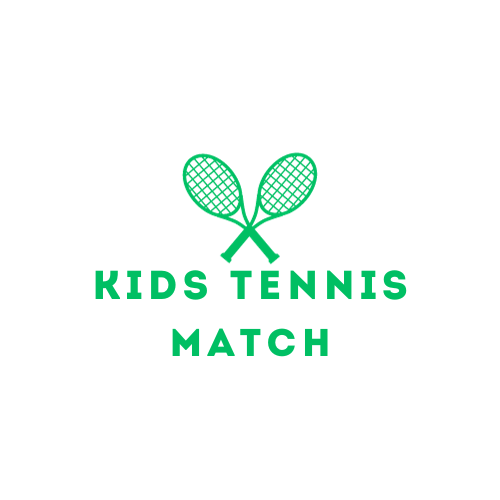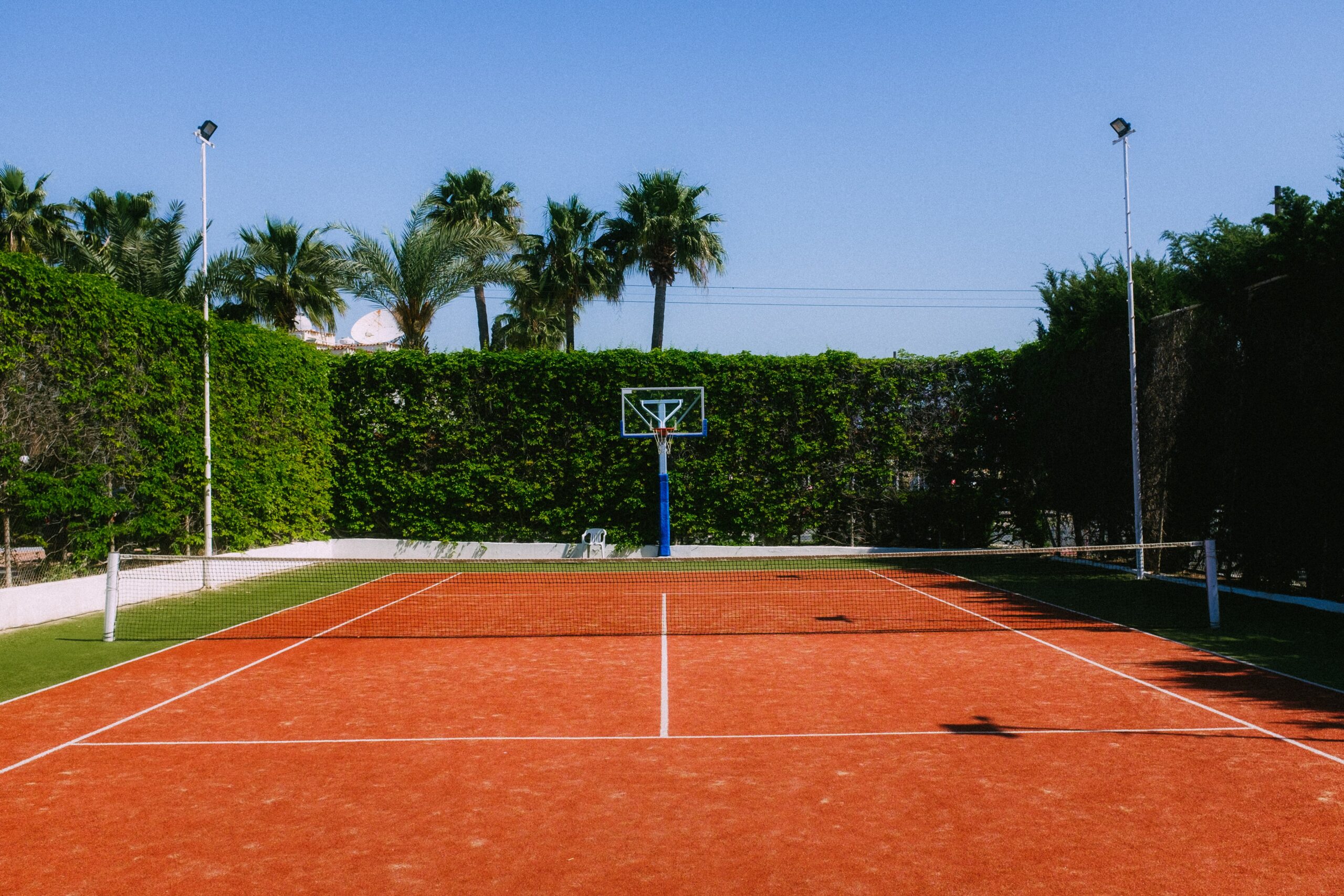Have you ever wondered what sets tennis camps apart from tennis lessons? While both offer valuable learning experiences, understanding the distinction between the two can help you make the best decision for your tennis journey. Tennis camps are immersive and social, providing a comprehensive experience that goes beyond skill development. On the other hand, tennis lessons focus more on individualized instruction, allowing for personalized guidance and targeted improvement. Whether you’re looking to refine your technique or simply enjoy the sport with like-minded individuals, discovering the nuances between tennis camps and lessons can guide you towards your desired tennis experience. Tennis camps and tennis lessons are both excellent options for individuals looking to improve their tennis skills and overall enjoyment of the sport. However, there are some key differences between the two. Understanding these differences can help you make an informed decision about which option is right for you or your child. Let’s explore the definition, benefits, limitations, and factors to consider when choosing between tennis camps and tennis lessons.
Definition of Tennis Camps
Tennis camps are intensive programs that typically last for a specific period, such as a week or several weeks. They are often held during the summer months when students have more free time. These camps have a structured schedule consisting of daily tennis training sessions, drills, and match play. The overall focus is to enhance tennis skills, improve physical fitness, and provide a fun and social environment.
Length of Time
The duration of tennis camps varies depending on the specific program. Some camps may be as short as a week, while others can last for multiple weeks. The length of time can also be influenced by factors such as the age range and skill level of the participants.
Structure
Tennis camps are well-structured programs that offer a comprehensive approach to tennis training. They typically include a combination of individual and group instruction, allowing participants to receive personalized guidance while also benefiting from the dynamics of group activities. The schedule often includes a mix of skill development, competitive play, and recreational activities to keep participants engaged and motivated.
Focus
The primary focus of tennis camps is to enhance tennis skills and overall performance. Coaches and instructors work closely with participants to improve their technique, footwork, strategy, and mental game. The goal is to help players become more confident, well-rounded tennis players.
Activities
In addition to tennis-specific training, tennis camps often include a range of other activities to provide a well-rounded experience. These can include fitness and conditioning exercises, video analysis of gameplay, team-building activities, and even educational sessions on topics such as sports psychology or nutrition.
Age Range
Tennis camps cater to a wide range of age groups, from young children to adults. Some camps may specialize in specific age ranges, while others offer programs for all ages. It’s important to choose a camp that aligns with the age group and skill level of the participant for the best learning experience.
Cost
The cost of tennis camps can vary greatly, depending on factors such as the reputation of the camp, the length of the program, and the facilities offered. It’s important to consider the cost as part of your decision-making process and to ensure that the value provided aligns with your budgetary considerations.
Benefits of Tennis Camps
Tennis camps offer numerous benefits for participants of all ages and skill levels. Here are some of the key advantages:
Skill Development
Tennis camps provide a focused environment where participants can receive expert instruction and guidance. Coaches and instructors are often trained professionals who have extensive experience in teaching and playing tennis. With their expertise, participants can rapidly progress in their skill development.
Social Interaction
Tennis camps provide an excellent opportunity for participants to interact and connect with other tennis enthusiasts. Group activities and match play foster a sense of camaraderie and create lasting friendships. The social aspect of tennis camps can enhance the overall experience and make it more enjoyable.
Competition Experience
Participating in tennis camps exposes players to various levels of competition. This experience helps to build resilience, improves decision-making under pressure, and enhances overall match-play skills. The competitive nature of tennis camps can be beneficial for those aiming to play competitively in tournaments or leagues.
Physical Fitness
Tennis is a physically demanding sport, and tennis camps provide the perfect setting to improve overall fitness levels. Through drills, exercises, and match play, participants can enhance their strength, endurance, agility, and coordination. The physical fitness component of tennis camps contributes to overall health and wellness.
Limitations of Tennis Camps
While tennis camps offer many advantages, it’s important to consider some limitations before making a decision. Here are a few to keep in mind:
Limited Personal Attention
Due to the group nature of tennis camps, individualized attention may be limited. Coaches may not be able to dedicate as much time to each participant as they would in a one-on-one lesson setting. This can make it challenging for individuals who require specific attention or have unique learning styles.
Lack of Individualized Instruction
Tennis camps typically focus on group activities, drills, and match play. While this can be beneficial for overall skill development, participants may miss out on the opportunity for personalized instruction that caters to their specific needs or areas of improvement.
Large Group Sizes
Depending on the popularity and size of the tennis camp, the group sizes can be relatively large. This may result in less individual attention and potentially longer wait times for participants to receive feedback or guidance from the instructors.
Definition of Tennis Lessons
Tennis lessons are individual or group sessions focused on improving tennis skills and technique. These sessions can be tailored to the specific needs and goals of the participant. Tennis lessons are typically taught by certified instructors or coaches with expertise in the sport.
Frequency
The frequency of tennis lessons can vary based on personal preference and availability. Lessons can be scheduled weekly, bi-weekly, or even multiple times per week. The frequency of lessons can be adjusted to accommodate the participant’s desired level of commitment and progress.
Duration
The duration of tennis lessons also varies. Sessions can range from 30 minutes to one hour or even longer, depending on the participant’s preference and the instructor’s scheduling availability. Longer sessions may allow for more focused and in-depth instruction.
Private/Group
Tennis lessons can be either private or in a group setting. Private lessons offer one-on-one instruction, allowing the instructor to provide personalized attention and feedback. Group lessons, on the other hand, involve multiple participants learning together, which can enhance the social aspect of the learning experience.
Curriculum
Tennis lessons typically follow a structured curriculum that focuses on specific aspects of the game. The curriculum may include instruction on technique, footwork, strategy, match play, and mental aspects of the game. The specific topics covered can be customized based on the participant’s skill level and goals.
Benefits of Tennis Lessons
Tennis lessons offer several advantages for individuals looking to improve their game. Here are some key benefits:
Individualized Instruction
One of the primary benefits of tennis lessons is the opportunity for personalized attention. In a one-on-one or small group setting, instructors can tailor the instruction to the participant’s specific needs and areas of improvement. This individualized approach can accelerate skill development and address specific challenges.
Flexible Scheduling
Tennis lessons offer flexibility in terms of scheduling. Lessons can be arranged to fit into the participant’s schedule, whether it be evenings, weekends, or other preferred times. This flexibility allows individuals to pursue their tennis goals without significant conflicts with other commitments.
Customized Curriculum
Tennis lessons can be customized based on the participant’s skill level, goals, and areas of focus. Instructors can design a curriculum that aligns with the individual’s needs and desired outcomes. This tailored approach ensures that participants receive instruction that is relevant to their specific objectives.
Limitations of Tennis Lessons
While tennis lessons have numerous benefits, there are some limitations to consider. These include:
Limited Social Interaction
Unlike tennis camps, tennis lessons may not offer the same level of social interaction and group dynamics. While group lessons can provide some socialization, it may not be as extensive as the opportunities presented in a camp setting. This aspect is important to consider for individuals who value the social aspect of tennis.
Higher Cost
Compared to tennis camps, tennis lessons can be more expensive, especially when opting for private instruction. The cost of lessons can vary depending on factors such as the instructor’s qualifications, location, and the duration of each session. It’s essential to consider the financial commitment when choosing between tennis camps and lessons.
Choosing the Right Option
When deciding between tennis camps and tennis lessons, there are several factors to consider. These factors can help you determine which option aligns best with your preferences and objectives. Here’s what to consider:
Age and Skill Level
Consider your age and skill level when choosing between tennis camps and lessons. Young children may benefit from the social environment of a camp, while more advanced players could benefit from the personalized attention of lessons. Assessing your skill level and goals can guide you in making an appropriate choice.
Goals and Objectives
Clarify your goals and objectives before choosing between camps and lessons. If you have specific areas of improvement or goals in mind, individualized instruction in lessons may be the better option. Conversely, if you want an immersive and social experience, a tennis camp may be more suitable.
Availability and Convenience
Consider the availability and convenience of both options. Tennis camps typically have specific dates and times, while lessons can be scheduled more flexibly. Evaluate your schedule and determine which option fits best with your commitments and availability.
Budget
Take your budget into account. Tennis camps and lessons can vary significantly in cost. Assess your financial resources and determine how much you are willing to invest in improving your tennis skills. Consider the value provided by each option and ensure that it aligns with your budgetary considerations.
Personal Preference
Lastly, trust your personal preference. Reflect on the type of learning environment that resonates with you. Some individuals thrive in group settings, while others prefer the focused attention of one-on-one instruction. Listen to your instincts and choose the option that feels most comfortable and enjoyable for you.
In conclusion, both tennis camps and tennis lessons offer unique benefits and considerations. Tennis camps provide a structured and social environment, fostering skill development, social interaction, competition experience, and physical fitness. On the other hand, tennis lessons offer individualized instruction, flexible scheduling, and customized curriculum. The choice between the two ultimately depends on factors such as age, skill level, goals, availability, budget, and personal preference. Consider these factors carefully to make an informed decision and enhance your tennis journey.




